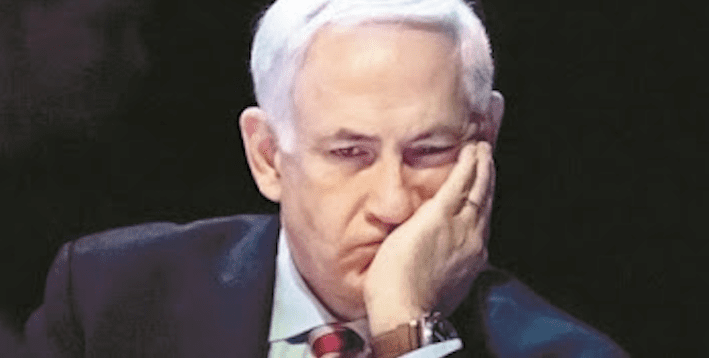In a new election Netanyahu would be fighting for his life. He would go for broke and try to attack anyone who gets in his way with all his might
rational examination of the situation in the Knesset after the most recent election leads to the conclusion that there is a consensus on both the right and the left against yet another round of voting. Only one person, by the name of Benjamin Netanyahu, wants a new election campaign with all his might.
It is logical that nobody has any interest at present in entering the vortex of another campaign. Even the bloc Netanyahu has built around himself in order to entrench himself as prime minister, come what may, is not all of a piece. The wall he has erected around himself is composed of a large number of bricks made of materials of different degrees of hardness, and therefore it’s unlikely that it will remain in place in the long run.
Even if we are still hearing voices expressing unreserved support for the prime minister, nobody is promising Likud backbenchers a seat in the next Knesset should another election be called. In addition, several Likud MKs are already preparing for a primary and revving their engines in advance of a fight over the party leadership.
Political logic says that Shas has no interest in another election. Its leaders would have to be total idiots, politically speaking, to be in favor of the Knesset being dissolved and going to the polls again. Such a step would be a big gamble for Shas: It increased its strength in the last election, but nobody can guarantee that this success will be repeated.
In this context, the situation in Hayamin Hehadash, led by Ayelet Shaked and Naftali Bennett, is no different. After they returned to the Knesset, following their failure to pass the minimum electoral threshold in the previous election, it doesn’t seem likely that they would be interested in another round of voting.
In a new election Netanyahu would be fighting for his life. He would go for broke and try to attack anyone who gets in his way with all his might, to survive in light of the indictments looming on the horizon.
Nor is it likely that Avigdor Lieberman is such an idiot that he would support the Knesset being dissolved again. After all, at the polls in September, the strength of his Yisrael Beiteinu rose, after the party barely eked by the 3.2-percent electoral threshold in the first election, in April. So for Lieberman, as well, a new election is likely to be one gamble too many. His interest is to maintain his strength and his status as a swing vote between the two blocs.
The Democratic Union and Labor emerged battered from the last round of voting, and were saved by the skin of their teeth from falling below the threshold. Nobody can guarantee that a new election – if there is one – wouldn’t spell disaster for them, and so naturally they have no interest in going to the polls again. And it is almost certain that the Joint List, which with great effort succeeded in September to bring back the votes it lost earlier in the year, won’t rush to support the dissolving of the Knesset and a new election. There could be many upsets in the Arab community, and nobody is promising the party a repeat success.
Kahol Lavan, which won the distinction of being the largest party in the Knesset, has no interest in another election. And now, after leader Benny Gantz has received the mandate from the president to form a government, the party’s other leaders will do everything possible to succeed in that mission.
Based on all the above, it is not likely that we will find ourselves in a third election campaign in the course of one year. At some point down the road we will see the beginning of movement within the blocs, the parties and perhaps even among the MKs.
Meanwhile, the last election brought us at least one positive thing. Israel’s citizens are beginning to breathe somewhat cleaner air: There is no longer a stench emanating from the residence on Balfour Street from the tweets of Netanyahu, Jr. Is that perhaps a sign that his father has had enough? That would also be something, in these chaotic times.
*
Haaretz, 30/10/2019
***
For Hebrew, press here

